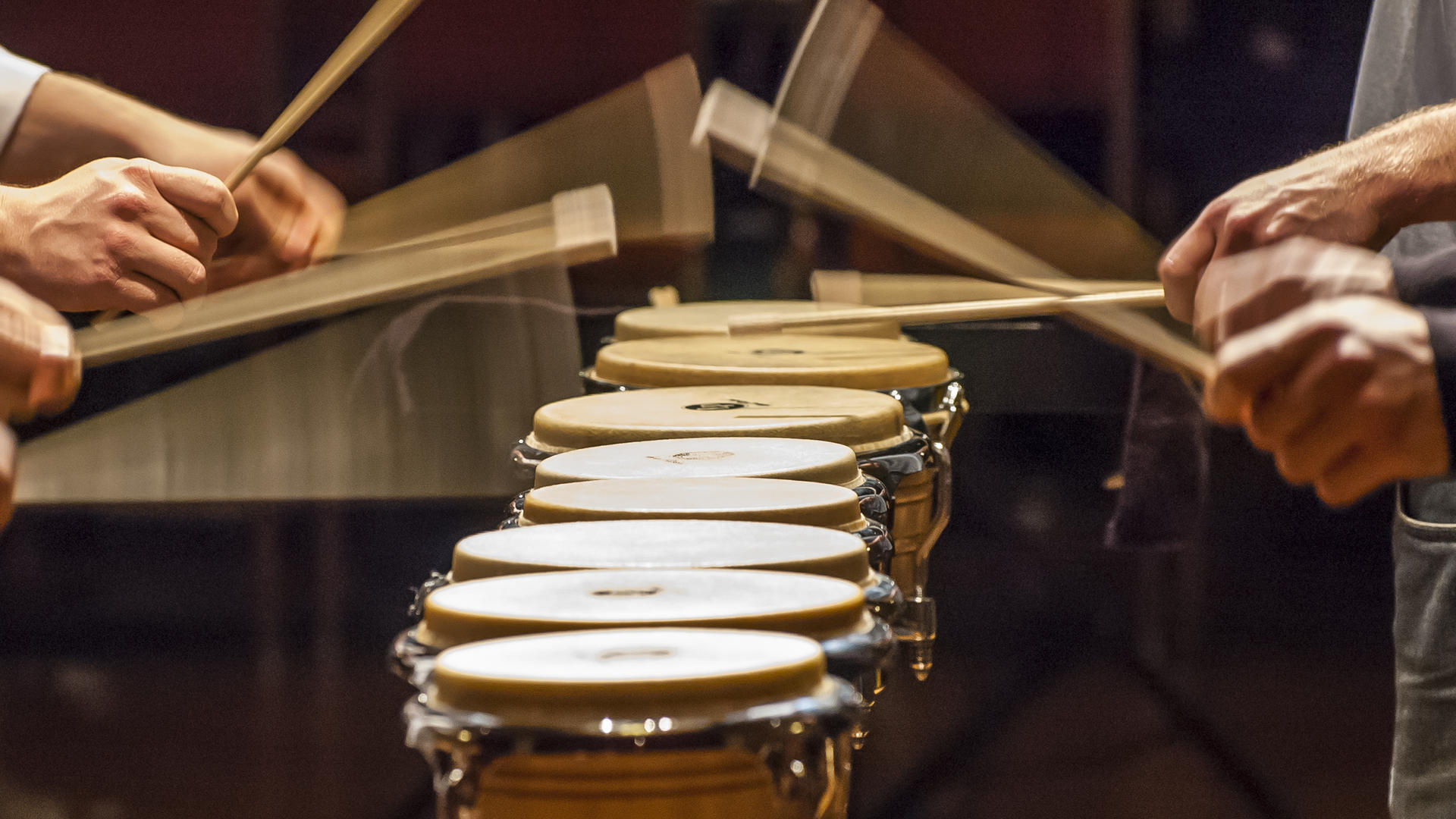
Percussion Instruments
If there is a part of music that remains to be extremely important in music whether it is classical, rock, or electronic music, it’s percussion. There are many forms it can take, ranging from cymbals, kettledrums, to tamborines.
Percussion is the heartbeat of music. In addition to providing rhythm to music and keeping time, many percussion instruments also produce tones, pitches, and melodic sounds.
Catherine King, study.com
In the first stages of music in history, the rhythm and percussion was far more important than the melody, in many ways because percussion instruments were easier to make and play in that context, and also, it managed to reflect the nature of the time.
War Drums

Percussion was also a very powerful instrument in war times, as many musicians rode into battle to play their instruments in order to increase morale and intimidate the other side. The oldest record of this happening was from 684 BC in China, during the war between Qi and Lu.
After this, the whole world slowly began to adopt this method to boost the emotional strength of the troops and let go of fear.
Drums and percussion in general began to grow in popularity and it also got a place in martial arts, as a way to make physical work more efficient. In a way percussion instruments move our bodies like no other. From war, these instruments later got another purpose, percussion instruments became a very popular part of music, eventually becoming the popular drumset that jazz and rock needs.
Modern Percussion
The modern drummer has one of the most important roles in a band, because it’s not just about rhythm, it’s about the dynamic of the music and its melody. With the help of the bass, the drummer offers the base and the whole basic structure of the song, while also giving the needed cues to change from each section of the song.
There is also a feel of completeness once the drums kick in in the song. For example imagine a rock band without a drummer, any big rock anthem without drums lacks energy and direction, which is why it’s so essential.

In an interview with Jazz drummer, Kenny Washington, he talks about melodic drumming and says:
You know, if a good drummer is playing time he’s still thinking of the sound. He’s not just thinking of the rhythm, he’s thinking about the sound, how he approaches the ride cymbal and the dynamic level. At least all the guys I know, the guys that can really play, they just can’t help themselves when it comes to playing music.
http://jonmccaslinjazzdrummer.blogspot.com/
He also talked about the importance of the drummer in a band by saying that:
Well, the thing about it is…if the drummer doesn’t know everything about the piece, then the band doesn’t have a chance. The band is finished before they even begin. It’s just as important for the drummer to know the melodies and what’s happening as anybody else. I say this all the time: A musical drummer is like a traffic cop on a busy street in Manhattan on Friday, rush hour at 5 o’clock at 42nd Street and Broadway. That’s what a drummer does, you know. A drummer can make a not-so-good arrangement into something much more than what it really is by his musical imagination and how he thinks about music and harmony.
http://jonmccaslinjazzdrummer.blogspot.com/
Electronic music still manages to give the same kind of energy as drums did thousands of years ago, and being able to manipulate sound in ways everyone would only dream of before, the body reacts to it in the form of dancing as if it were just a natural reaction which is what happens at edm festivals and parties. Someone who works with electronic music, is in a way a percussionist, as he not only makes the rhythm and beats, but he also manipulates the sound which originally comes from bongos, timbales, congas and so on.
It’s interesting to see the journey of percussion instruments through time and how essential they are in most compositions today, while there is so much more to say about percussion instruments, it’s good to have an idea of the history behind them and the roles they cover today.
